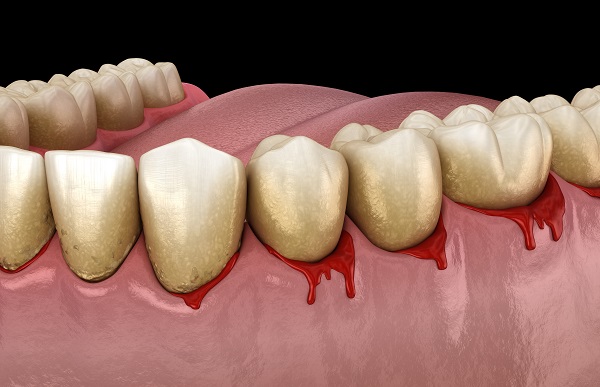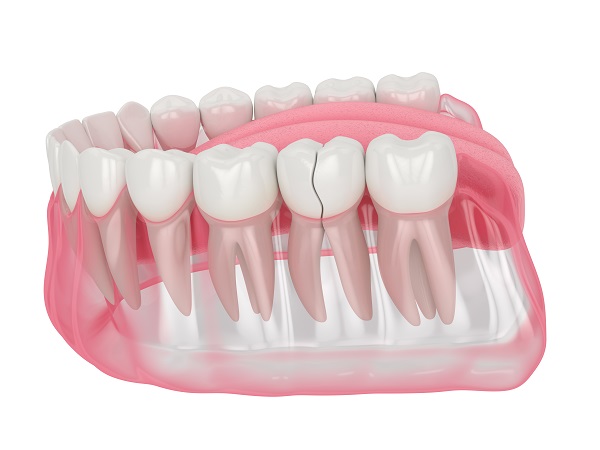A Family Dentist Shares 4 Common Causes of Bad Breath

Are you experiencing bad breath and wondering whether your family dentist can help? Bad breath, also known as halitosis, is something that affects us all at one point in our lives. The condition is caused by different factors, but it is primarily caused by leftover food particles in the mouth and poor oral hygiene.
4 Common causes of bad breath
If you talk to your family dentist about the causes of bad breath, they will tell you that the four most common causes are:
1. Oral bacteria
The bacteria in your mouth feed off the sugars and starch in the food that you eat, which is why it is important to brush your teeth at least twice a day and floss regularly to get rid of the food particles that get stuck in your teeth.
Failure to properly clean your teeth leads to the food particles in your teeth going rotten and the plaque on your teeth hardening and turning into tartar, causing gum disease and tooth decay. The bacteria in your mouth will also produce bad smelling waste, which makes your breath smell worse than it actually is.
2. Tobacco use
If you brush your teeth regularly and make regular visits to your family dentist, you will still suffer from bad breath if you smoke or use tobacco products. The nicotine and chemicals found in tobacco products lead to gum disease, which makes your breath worse. Even if you do not end up having gum disease, the tobacco use will still give you bad breath.
Since tobacco use can also lead to more serious health problems, you should give up the habit before it causes bigger problems than bad breath.
3. Lack of saliva
If you have a dry mouth, it means your body is not producing enough saliva, which is a condition that can be caused by different factors. The lack of saliva allows the bacteria in your mouth to grow because you cannot wash them away, leading to very bad breath. If you are not producing enough saliva, you should drink a lot of water to hydrate your body.
4. Medical conditions
As previously mentioned, poor oral health is not the only reason you may have bad breath. Your family dentist will tell you that factors like your medical condition also play a role in how your breath smells. Medical conditions that affect how your breath smells include:
- Tonsillitis: Food debris, mucus, dead cells and bacteria can get trapped in your tonsils, and when they harden, they form tonsil stones. If you suffer from chronic tonsil inflammations, your bad breath is likely an indicator that you have tonsil stones, which can be treated by gargling warm salt water
- Sinus breath: This is caused by an infection of your sinuses due to inflammation or allergies
- Lung breath: You can have bad breath if your lungs are infected because of medical conditions like pneumonia, tuberculosis, pulmonary abscess, emphysema or bronchitis
The other types of bad breath caused by medical conditions are:
- Gut breath
- Metabolic breath
- Diabetes breath
- Drug breath
- Liver breath
- Trimethylaminuria breath
- Menstrual breath
- Drug-induced bad breath
Conclusion
Having bad breath can be embarrassing, fortunately, it is a condition that can be treated. Now that you know the most common causes of bad breath, talk to your family dentist to find out more about how to treat and prevent bad breath.
Request an appointment here: https://www.kentlawsondds.com or call Kent B. Lawson DDS at (713) 721-1222 for an appointment in our Houston office.
Check out what others are saying about our services on Yelp: Read our Yelp reviews.
Recent Posts
Gum disease is an infection of the soft tissues within the mouth. Many people suffer from a form of gum disease without even realizing it. The gums often get overlooked during oral hygiene, which can make it easy to miss the signs. Keep reading to learn more about what the signs look like. Outlined below are…
Wondering how dentists repair a cracked tooth? When someone cracks one of their teeth, it can cause minimal or extreme pain. Cracked teeth can also lead to an oral infection, which can spread to nearby areas. Because of this risk, it is essential to visit a dentist for repair. Understanding what can cause a cracked tooth…
Preparing for a wisdom tooth extraction? The procedure often sparks fear in patients because it does involve pulling teeth. However, it is important to know that modern-day technology has allowed for the evolution of better techniques, which reduce pain and recovery time. Nonetheless, it is still important to be familiar with the recovery time and…
Much like a routine visit to the doctor’s office, a dental check-up is a good way to assess how you are doing with oral wellness. It is easy to get busy with life and forget about making this important appointment. However, you should make this a priority for yourself and everyone in your family.A dental…


